WEB DESIGN . GRAPHIC DESIGN . PRINT . PROMOTIONAL
Outlook 2013 Tutorial
Note: As a courtesy to our customers, we provide online tutorials on how to configure various email software. Our staff, however, are not able to provide support on how to use Microsoft Outlook. For further assistance in using Microsoft Outlook 2013, please see Microsoft's Outlook 2013 support pages.
Your email setting can be found by logging into your webmail here and then clicking on [Mail Client Configuration].
Setup An Email Account In Outlook 2013 Website Tutorial
- 1. Open Microsoft Outlook 2013.
- 2. Click File.
- 3. Select Info from the drop down menu.
- 4. Click Account Settings.
- 5. Select the Add and remove accounts option from the drop down.
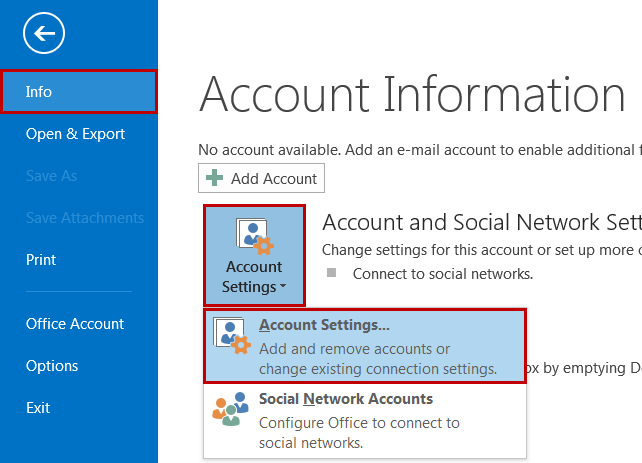
- 6. Under the Email tab, click New.
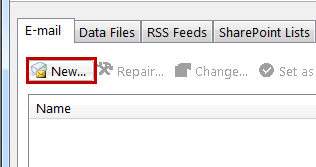
Modifying the settings for an existing account?
If making changes to an existing account, under the Email tab you will see a list of email accounts that exist within Outlook 2013, double click on the email account you wish to make changes to, then skip to step 9.
- 7. Select the Manually configure server settings or additional server types radio option then click [Next]
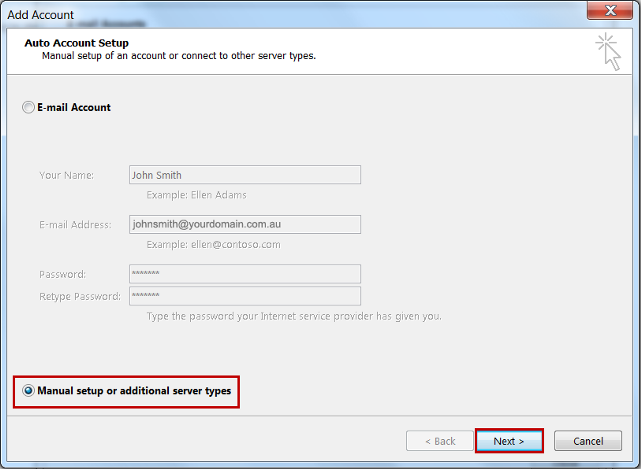
- 8. Select the POP or IMAP option and click [Next]
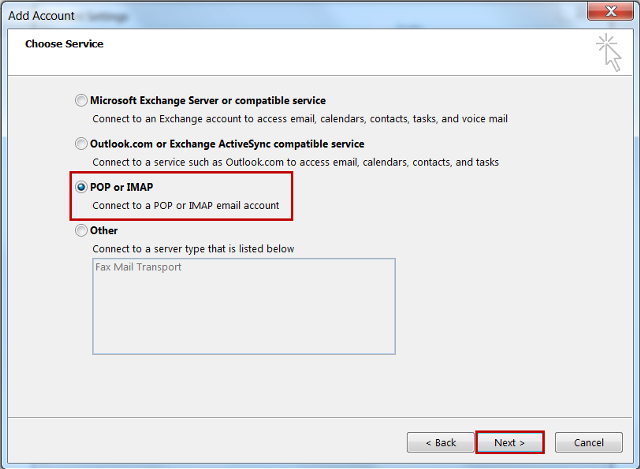
- 9. Complete the empty fields:
Your Name: The name you wish displayed when people receive your emails
Email Address: The email address you are sending email from.
Account Type: Select POP3 or IMAP from the drop down.
POP or IMAP?
Read our POP vs IMAP article for more information about the two types of protocols.
Incoming mail server: (pop): mail.yourdomain.com.au where yourdomain.com.au is your domain name.
Outgoing mail server: mail.yourdomain.com.au where yourdomain.com.au is your domain name or you can enter your Internet Service Provider’s (ISP) outgoing mail server.
User Name: Your full email address. eg. This email address is being protected from spambots. You need JavaScript enabled to view it.
Password: The password used for this email account.
It is up to the end user to decide if they wish to create a new Outlook Data File or not, this choice does not affect the connection to our servers.
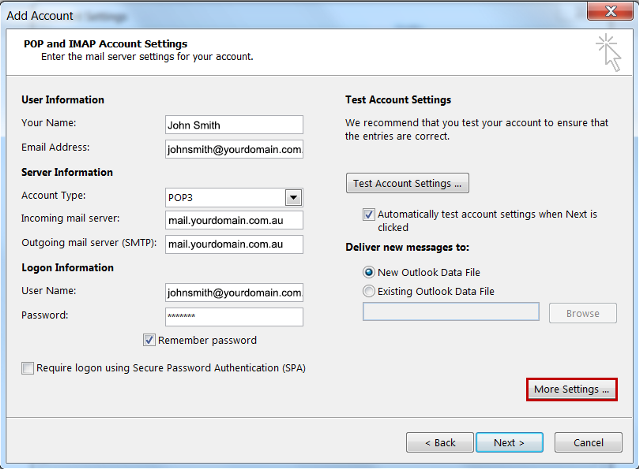
- 10. Click [More Settings]
- 11. Select the Outgoing Server tab
- 12. Select My outgoing mail sever (SMTP) requires authentication and Use same settings as incoming mail server
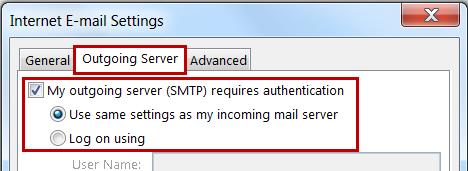
- 13. Select the Advanced tab.
Users can choose whether to use SSL or not, both are supported on our servers
Without SSL Encryption
This server requires an encrypted connection (SSL) = Unselected
Change the Outgoing server (SMTP) number to 26
Use the following type of encrypted connection = None
With SSL Encryption
This server requires an encrypted connection (SSL) = Selected
Change the Outgoing server (SMTP) number to 465
Use the following type of encrypted connection = SSL
Note: Enabling SSL on shared email services can cause some warnings to appear in your email software.
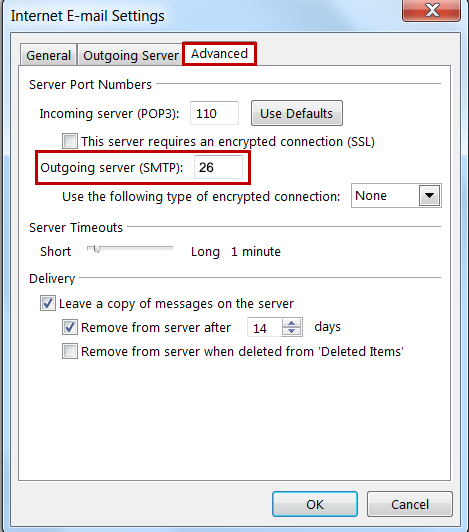
- 14. Click [OK]
- 15. Click [Next] then [Finish]
This completes the setup of your email account in Outlook 2013.



